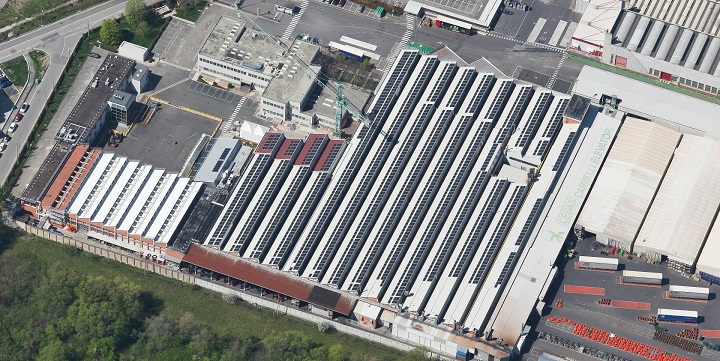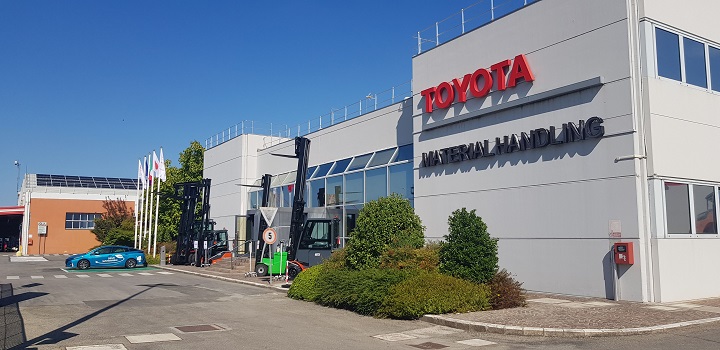

A method to organise production and standardise the production process that ensures an increase of productivity and an improvement of both quality and safety, constantly guaranteeing client satisfaction. The Toyota Production System, known on a global level as TPS, is the common thread of the success of Toyota Material Handling Manufacturing Italy, which was established in Bologna in 1942 with the name of CESAB and which, in 2000, became part of Toyota Industries Corporation (TICO), specialised in the production of sophisticated forklift trucks exported all over the world under the Toyota brand.
It is precisely in view of continuous improvement that, on 1st October, Toyota Material Handling Manufacturing Italy introduced the second implementation step of the factory photovoltaic plant for an overall installed power of 702 kW. The installation of 2,365 panels that make up the plant, which currently covers 3,882 square metres, i.e. over half a football pitch, started in 2017 simultaneously with the complete renovation of the roof of the production building.
As highlighted by the company with reference to the 2018 data published by GSE, the power installed corresponds to 0.2% of the entire photovoltaic power installed in the Bologna province. The system is the third largest of the photovoltaic systems found in the Bologna area after FICO Eataly World and BolognaFiere. With an expected average annual production of 0.86 GWh of renewable energy, equal to one third of the total energy used in a year by the facility, the factory will continue on a global level to saving 370 equivalent tons/year of CO2.
The project is part of a series of initiatives that Toyota Material Handling Manufacturing Italy, ISO 50001 certified as of 2015, favours to implement what envisaged by the Toyota Industries Corporation Environmental Vision, which aims at zeroing CO2 emissions by 2050 for all its products and operations.
“Our facility already formally compensates 100% of the CO2 produced by the consumption of methane gas and electricity necessary for operations. When it comes to electricity, this compensation occurs via the acquisition of renewable energy certified by GO titles issued by the GSE while, when it comes to gas, via the acquisition of carbon credits issued by UN projects and Gold Standard certified”, explains CEO Giorgio Polonio. “However, we firmly believe that the self-production of renewable energy is strategic as well as sustainable. The facility is self-sufficient for the current consumption of electricity during the daylight hours of the sunnier months. Structured monitoring actions of energy consumption with Building Automation projects, the progressive improvement of building energy performances and the systematic conversion of existing systems with low or zero-carbon emission ones will be essential to prepare the facility to welcome future generations”.